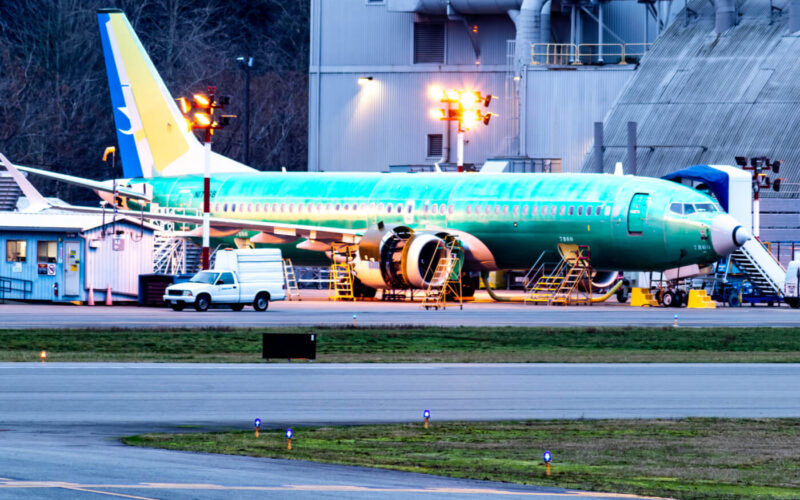The internal emails among Boeing company employees working on the 737 MAX development program, which have recently been made public, have revealed some underlying problems with the company’s safety culture. Some of them indicate that the problems, especially those related to the development and qualification of simulators, might be expanding from the ill-fated MAX to Boeing’s next development ‒ the 777X.
In a letter dated June 2018, an unidentified worker describes problems during development and qualification of Boeing’s MAX simulators in 2017 and 2018 by outlining issues such as “picking the lowest cost supplier and signing up to impossible schedules”.
Further on, it is outlined that the same supplier, described as “lowest ranking and most unproven”, was also chosen for the 777X program. Being critical of the company’s job with the MAX, the person later summarizes: “Best part is we are re-starting this whole thing with the 777X with the same supplier and have signed up to an even more aggressive schedule!”
On January 9, 2020, in a statement on the emails, Boeing has acknowledged that some of the communications relate to Boeing 737 MAX simulators’ development and qualification, particularly to the events in 2017 and 2018.
“These communications […] in certain instances, raise questions about Boeing’s interactions with the FAA in connection with the simulator qualification process,” the statement reads. “Having carefully reviewed the issue, we are confident that all of Boeing’s MAX simulators are functioning effectively.”
“The qualification activities referenced in these communications occurred early in the service life of these simulators,” the manufacturer has further stated. “Since that time, both internal and external subject matter experts have repeatedly tested and qualified the simulators at issue”. However, the company has not addressed the possible issues affecting the 777X simulator development and qualification program. AeroTime News has reached out to Boeing for comment.
Boeing 777X is an aircraft currently in development. Once in service, it should replace the aging Boeing 777-200LR and 777-300ER fleets. While Boeing has been open about the 777X program progress as per usual, the manufacturer changed its strategy providing scarce information on the development progress and milestones, following the Ethiopian Airlines flight ET302 crash (which prompted the word-wide grounding of 737 MAX in March 2019).
Nevertheless, the 777X program has already faced several issues potentially threatening its schedule. In September 2019, a cargo door on a Boeing 777X static test plane “blew out” during a ground stress test. The fuselage of the test aircraft suffered a high-pressure rupture just as it approached its ultimate load required to certify the jet, the manufacturer later confirmed.
While Boeing claimed the incident would have no significant impact on the overall test program schedule, it was already experiencing delays due to problems in the development of the massive GE9X engine purpose-designed for the new jet. It appears that GE Aviation has managed to fix the issue with its GE9X, involving the engine’s stator vanes. New photos that appeared on December 17, 2019, showed the GE9X engines already installed on the 777X. The first flight of 777X was previously expected to take place in early 2020 and the first delivery in 2021.
On the main photo: Boeing 737 MAX

